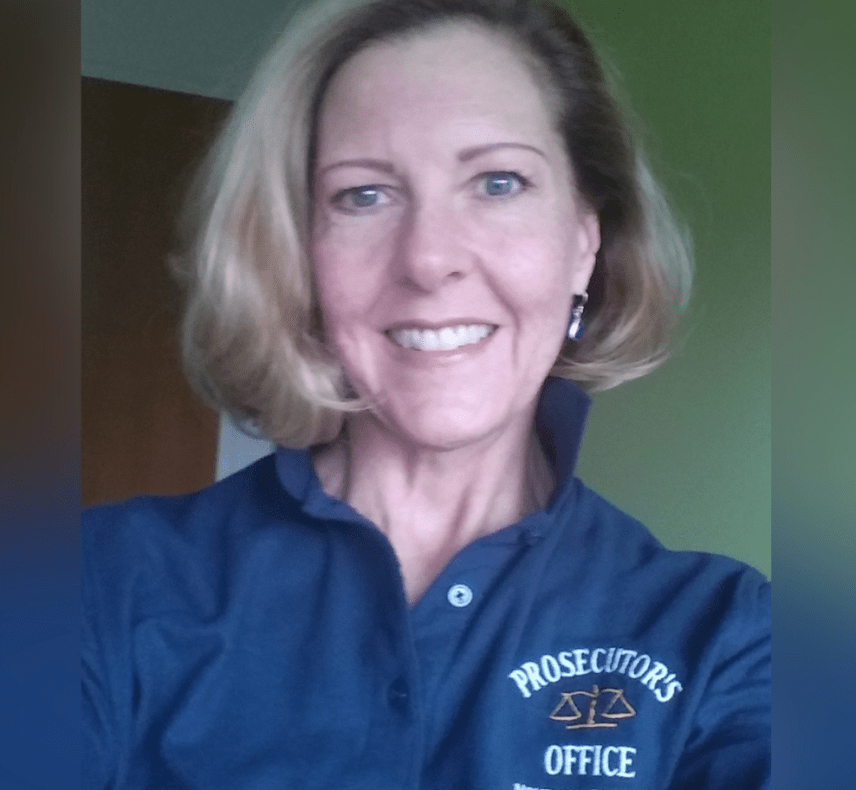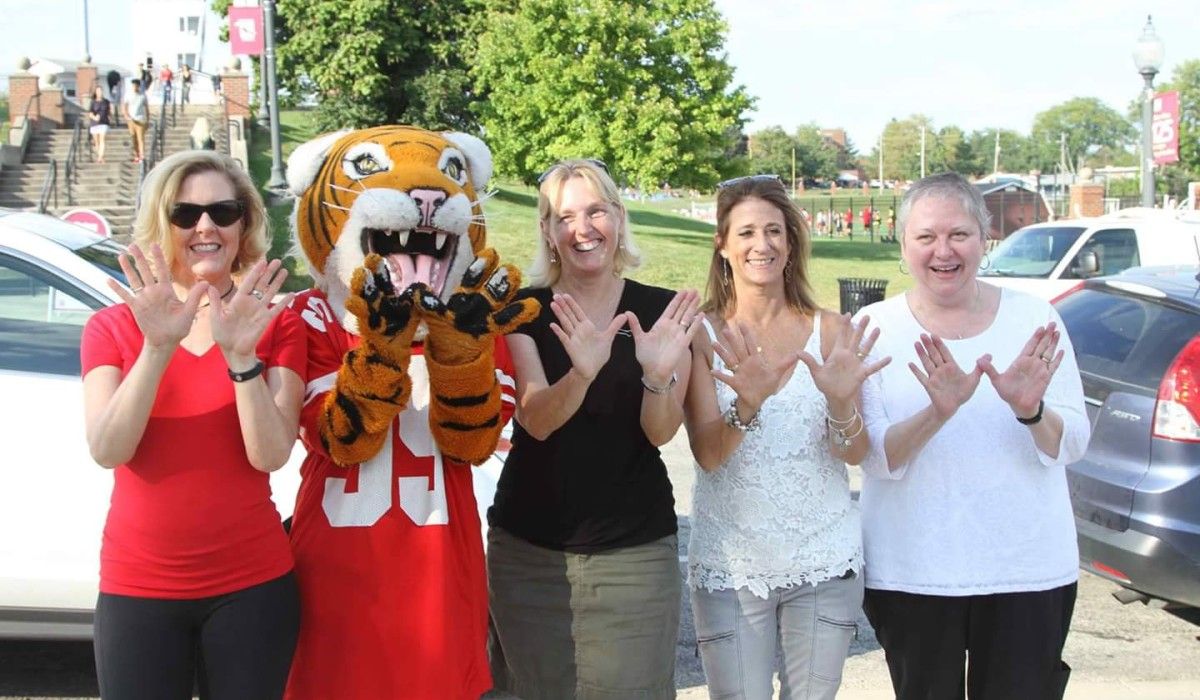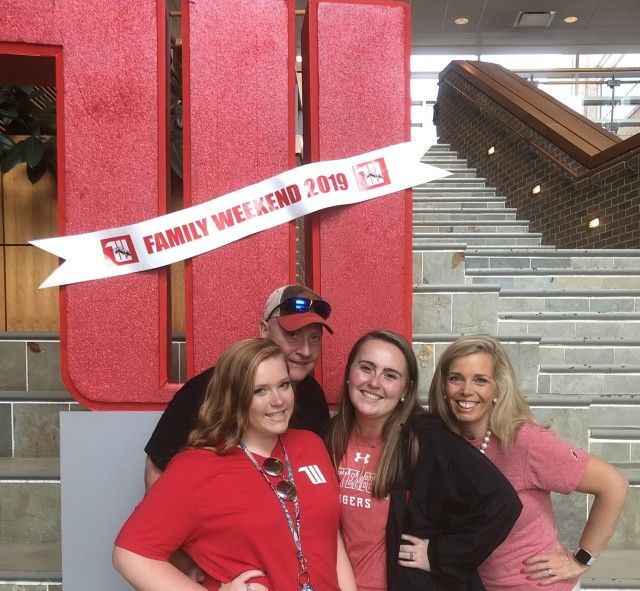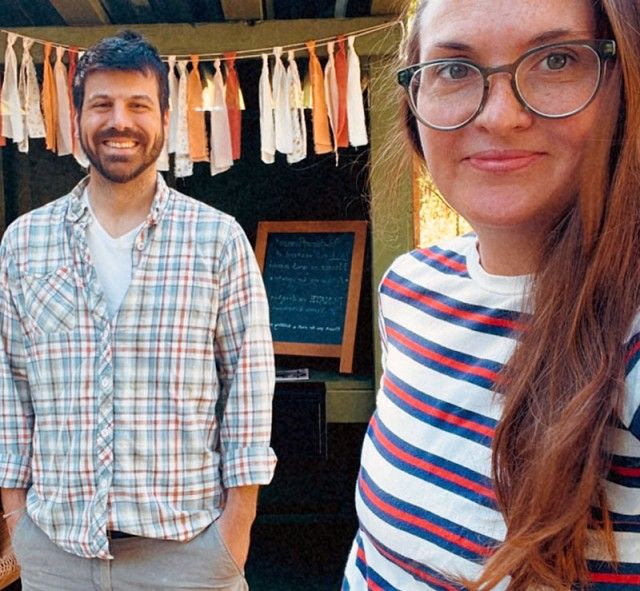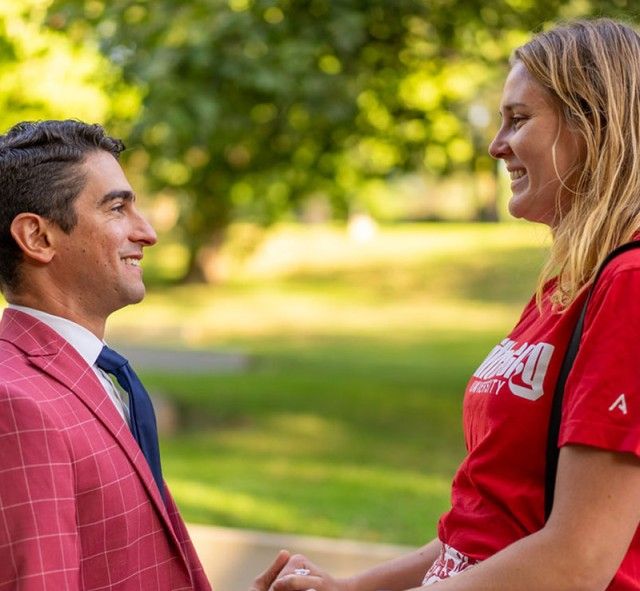Sometimes the path you start in college is not where you end up, but at Wittenberg, the connections you make and the skills you gain will stay with you long after graduation, aiding you in the moments when you need them most. For Jamie Bailey Oliver, class of 1982, this was definitely the case.For 30 years, Bailey Oliver dedicated herself to her career as a victim advocate, using her personal experiences to change the lives of others and embodying Wittenberg's motto: "Having Light We Pass It On To Others."
Originally from Wapakoneta, Ohio, Bailey Oliver attended Wittenberg because the small campus and student body reminded her of her small hometown. Always maintaining that Wittenberg was the right choice for her, the economics major and Chi Omega member took advantage of her time on campus, building many relationships with faculty, staff, and fellow students.
In her early career after graduation, Wittenberg connections sent Bailey Oliver to live and work in places around the world.
“Through friendships I made at Wittenberg, I worked in Chautauqua, New York, and Columbus, Ohio, and indirectly (through a Wittenberg connection, but not a Wittenberg alum), I lived in California, Texas, and South Korea,” she said. “However, all of that was before I became a victim advocate."
The journey from economics major to victim advocate may seem like a radical one, but for Bailey Oliver, her calling was never far away. In her first-year group at Wittenberg, she studied under Dr. Alan McEvoy whose area of expertise included victims of violence and abuse. The class sparked an interest in criminal justice and social work, but she was dissuaded by her parents in favor of a more "practical" major.
She would eventually find her way back to this path following some difficult personal experiences that changed the course of her career. In 1990, after leaving an abusive marriage, she began attending a support group for survivors of domestic violence. With some encouragement from the group's facilitator, Bailey Oliver wanted to offer her own experiences to aid victims in similar situations and applied for an advocate position at a prosecutor's office.
She immediately got to work equipping herself with the knowledge she would need to take on this new task.
"Having majored in economics, rather than criminal justice or social work, I needed to educate myself in those areas before I felt comfortable applying to the position," she said. "Like I learned at Wittenberg, I knew I better study, so I went to the local library and took out a 'Criminal Justice 101' textbook, and a copy of the Victim Crime Act from 1984. I prepared myself for the interviews and, well, the rest is history."
What followed were decades worth of difficult but rewarding work helping survivors of domestic violence, sexual assault, child abuse, and homicide.
For Bailey Oliver, the people she met at Wittenberg made an important impact. Throughout the years, Bailey Oliver has continued to stay in touch with those she met through Wittenberg—both the people she attended school with and people she met after graduating. This strong network of support was there for her in the moment that she needed them.
"I was helped by so many people during my time leaving the abusive marriage, some of whom were friends I met at Wittenberg and others who were resources in the right place at the right time,” she explained. “It was important to me to give back by taking my experience to help others."
As chance would have it, Bailey Oliver would find some of her old Wittenberg sociology professor's work years later.
"After I became a victim advocate,” she said, “I came across a booklet written by Dr. McEvoy on the subject of domestic violence and the dynamics of abusive relationships. I felt I had come full circle."
For nine years, Bailey Oliver worked with the CARE House, the Child Advocacy Center in Montgomery County, Ohio, that assists children, their families, and their caregivers. The CARE House, established in 1998, focuses on helping abused children and making sure there is someone to advocate for them. Here, Bailey Oliver was part of a multi-disciplinary team that addressed these needs in the community.
She was also called in to help after the tragic 2019 Dayton mass shooting in which more than two dozen people lost their lives or were seriously injured. In the aftermath, Bailey Oliver assisted the families of victims as they worked through the difficult and emotional trials in the weeks that followed.
After decades of successful and meaningful work, Bailey Oliver retired from her career as a victim advocate in April 2021 and has been spending her time hiking, doing yoga, and working in a local gift shop in Dayton. She hopes to soon return to the CARE House, where she spent nearly a third of her career, as a volunteer.
By Isabella M. Fiorito ’23


